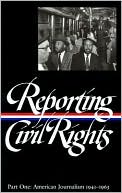Category Books
- Fiction Books & Literature
- Graphic Novels
- Horror
- Mystery & Crime
- Poetry
- Romance Books
- Science Fiction & Fantasy
- Thrillers
- Westerns
- Ages 0-2
- Ages 3-5
- Ages 6-8
- Ages 9-12
- Teens
- Children's Books
- African Americans
- Antiques & Collectibles
- Art, Architecture & Photography
- Bibles & Bible Studies
- Biography
- Business Books
- Christianity
- Computer Books & Technology Books
- Cookbooks, Food & Wine
- Crafts & Hobbies Books
- Education & Teaching
- Engineering
- Entertainment
- Foreign Languages
- Game Books
- Gay & Lesbian
- Health Books, Diet & Fitness Books
- History
- Home & Garden
- Humor Books
- Judaism & Judaica
- Law
- Medical Books
- New Age & Spirituality
- Nonfiction
- Parenting & Family
- Pets
- Philosophy
- Political Books & Current Events Books
- Psychology & Psychotherapy
- Reference
- Religion Books
- Science & Nature
- Self Improvement
- Sex & Relationships
- Social Sciences
- Sports & Adventure
- Study Guides & Test Prep
- Travel
- True Crime
- Weddings
- Women's Studies
Reporting Civil Rights: American Journalism 1941-1963, Vol. 1 »

Authors: Clayborne Carson (Compiler), David J. Garrow (Compiler), Carol Polsgrove (Compiler), Bill Kovach
ISBN-13: 9781931082280, ISBN-10: 1931082286
Format: Hardcover
Publisher: Library of America
Date Published: January 2003
Edition: (Non-applicable)
Author Biography: Clayborne Carson
The advisory board for Reporting Civil Rights includes Clayborne Carson, senior editor, The Papers of Martin Luther King, Jr.; David J. Garrow, Presidential Distinguished Professor, Emory University; William Kovach, chairman, Committee of Concerned Journalists; and Carol Polsgrove, professor of journalism, Indiana University.
Book Synopsis
From A. Philip Randolph's defiant call in 1941 for African Americans to march on Washington to Alice Walker in 1973, Reporting Civil Rights presents firsthand accounts of the revolutionary events that overthrew segregation in the United States. This two-volume anthology brings together for the first time nearly 200 newspaper and magazine reports and book excerpts, and features 151 writers, including James Baldwin, Robert Penn Warren, David Halberstam, Lillian Smith, Gordon Parks, Murray Kempton, Ted Poston, Claude Sitton, and Anne Moody. A newly researched chronology of the movement, a 32-page insert of rare journalist photographs, and original biographical profiles are included in each volume
Roi Ottley and Sterling Brown record African American anger during World War II; Carl Rowan examines school segregation; Dan Wakefield and William Bradford Huie describe Emmett Till's savage murder; and Ted Poston provides a fascinating early portrait of Martin Luther King, Jr. In the early 1960s, John Steinbeck witnesses the intense hatred of anti-integration protesters in New Orleans; Charlayne Hunter recounts the hostility she faced at the University of Georgia; Raymond Coffey records the determination of jailed children in Birmingham; Russell Baker and Michael Thelwell cover the March on Washington; John Hersey and Alice Lake witness fear and bravery in Mississippi, while James Baldwin and Norman Podhoretz explore northern race relations.
Singly or together, Reporting Civil Rights captures firsthand the impassioned struggle for freedom and equality that transformed America.
The New York Times
This is a massive, two-volume collection of nearly 200 essays, manifestoes, news stories, speeches and, above all, eyewitness accounts by 151 writers, arranged chronologically, from 1941 to 1973. Given their grab-bag texture, the books make unexpectedly gripping reading. On the one hand, you already know what's going to happen, at least with the major events — Brown v. Board of Education, Rosa Parks and the Montgomery bus boycott, the passage of the 1964 Civil Rights and 1965 Voting Rights Acts, the murders of Medgar Evers, Emmett Till, Malcolm X and Martin Luther King Jr. At the same time, the datelined immediacy of these dispatches makes clear, in a way that even the best historical writing cannot, the shocks and disjunctions, the uncertainty that surrounded each moment of since-consecrated struggle and even some of the other ways that things might have turned out. — William Finnegan
Table of Contents
Subjects
 African American History
African American History  Civil Rights - African American History
Civil Rights - African American HistoryEntertainment
 Media
Media  Journalism
JournalismEntertainment
 Media
Media  Mass Media & Politics
Mass Media & PoliticsHistory
 African American History
African American History  African American History
African American HistoryHistory
 American History
American History  United States History - 20th Century - 1945 to 2000
United States History - 20th Century - 1945 to 2000History
 American History
American History  United States History - African American History
United States History - African American HistoryHistory
 Political History
Political History  Civil & Human Rights
Civil & Human RightsNonfiction
 Social Sciences
Social Sciences  Media & Communications
Media & CommunicationsNonfiction
 Social Sciences
Social Sciences  General & Miscellaneous
General & MiscellaneousPolitical Books & Current Events Books
 Civil & Human Rights
Civil & Human Rights  Civil Rights - Movements & Figures
Civil Rights - Movements & FiguresPolitical Books & Current Events Books
 Civil & Human Rights
Civil & Human Rights  Civil Rights - United States
Civil Rights - United StatesPolitical Books & Current Events Books
 All Politics
All Politics  Civil & Human Rights
Civil & Human RightsScience & Nature
 Social Sciences
Social Sciences  Media & Communications
Media & CommunicationsScience & Nature
 Social Sciences
Social Sciences  General & Miscellaneous
General & MiscellaneousSocial Sciences
 Media & Communications
Media & Communications  Journalism
JournalismSocial Sciences
 Media & Communications
Media & Communications  Mass Media & Politics
Mass Media & PoliticsSocial Sciences
 General & Miscellaneous
General & Miscellaneous  Ethnic & Race Relations
Ethnic & Race RelationsNonfiction
 Entertainment
Entertainment  Media
MediaNonfiction
 History
History  African American History
African American HistoryNonfiction
 History
History  American History
American HistoryNonfiction
 History
History  Political History
Political HistoryNonfiction
 Politics & Current Affairs
Politics & Current Affairs  Civil & Human Rights
Civil & Human RightsNonfiction
 Politics & Current Affairs
Politics & Current Affairs  All Politics
All Politics
